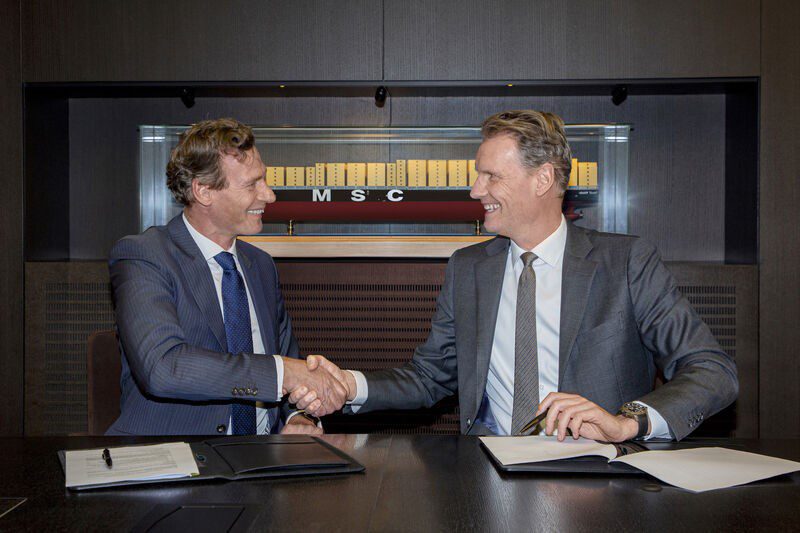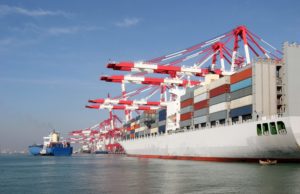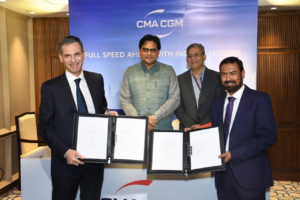
Geneva-based container line MSC Mediterranean Shipping Company and logistics provider DB Schenker have sealed an important biofuel deal to help reduce supply chain emissions. This is the first-of-its-kind agreement between a freight forwarder and a shipping line.
The arrangement covers 12,000 tonnes of biofuel component for all of DB Schenker’s consolidated cargo, LCL (less-than-container load), FCL (full-container-load) and reefer containers from MSC.
Both companies in a joint press statement said today, that the amount of biofuel purchased, is enough to save an additional 35,000 metric tons of CO2 equivalents (CO2e) along the entire production chain, adding that the “purchase agreement signed this month, represents one of the largest carbon insetting biofuel deals, between a freight forwarder and a shipping company.”
It sets out the use of certified sustainable, second-generation biofuels – derived from used cooking oil – instead of conventional fossil-based marine fuel.
The equivalent of around 30,000 standard containers (teu) may be shipped with net-zero CO2 emissions, depending on how the fuel is used during navigation.
The 12,000 metric tons of biofuel component will be blended between 20 and 30%, resulting in approximately 50,000 metric tons of blended biofuel to be used in MSC’s container ships.
Biofuel can be used for regular ocean freight operations without adjusting a ship’s infrastructure or supply chain, making it a particularly convenient solution, as the companies explains today.
Second-generation biofuel, also known as advanced biofuel, ensures at least 80% reduction in CO2e emissions (well-to-wake), as it is furthermore mentioned.
Thorsten Meincke, Global Board Member for Air & Ocean Freight at DB Schenker, said: “Together with MSC, we are offering our customers a convenient and clean solution using the latest generation of maritime biofuel, to help them achieve a real additional reduction in their emissions. We are doing this because we firmly believe it is the right thing to do, and are therefore paying for biofuel purchases in advance. One thing is certain: the more customers demand climate neutrality throughout supply chains, the faster we achieve clean container ocean freight.”
Caroline Becquart, Senior Vice President of MSC added: “Decarbonizing ocean freight cannot be achieved by a single player, and requires collaboration between shipping and logistics companies, and their customers. MSC Biofuel Solution, is our first certified carbon insetting program, that reduces emissions in our customers’ supply chains, accelerating the energy transition by creating demand for net-zero-carbon shipping, and delivering direct CO2 savings. We’re delighted to partner with DB Schenker, with whom we share similar climate ambitions along our collective journey to net zero.”


